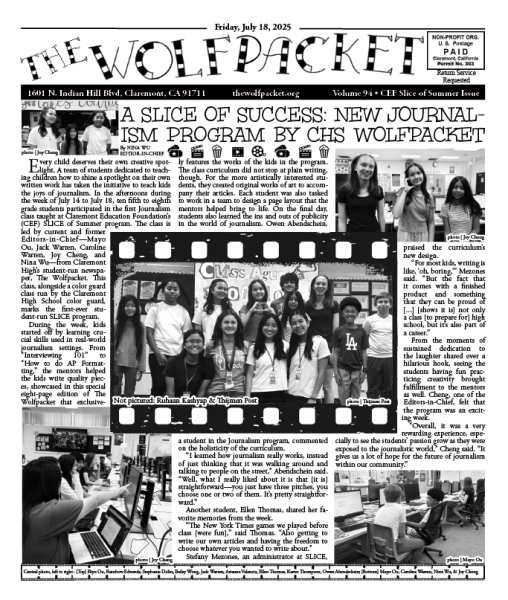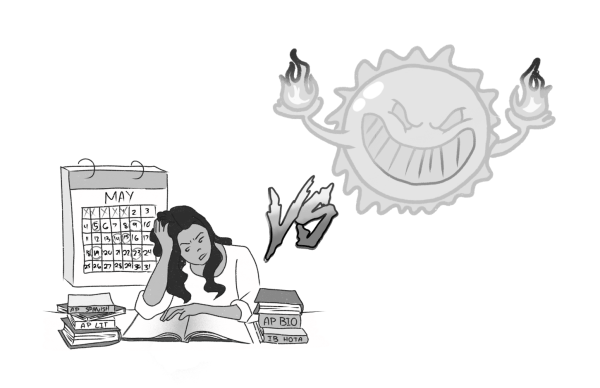Special Ed Case Helps All
On March 22, the Supreme Court ruled unanimously for the parents of an autistic child in the now landmark court case, Endrew F. v. Douglas County School District, who argued that the Douglas County School District located in Colorado did not provide suitable education for their son with special needs. Although some lower courts had deemed “merely more than de minimis” to be acceptable for special education students, the Supreme Court said that school districts must provide an education that can encourage students to meet more challenging objectives and have appropriately ambitious goals for each child’s circumstances. The Supreme Court’s decision could bring major benefits to people with disabilities, especially those who have “individualized education programs” (IEPs).
“When all is said and done, a student offered an educational program providing merely more than de minimis progress from year to year can hardly be said to have been offered an education at all,” said Chief Justice Roberts.
Endrew F. was diagnosed with autism as well as ADHD as a child, which means he has learning and emotional disabilities that his parents felt were not being appropriately addressed at his public school. When his parents moved him from a Douglas County public school to a private school, he made significantly more academic progress. His parents sued for the cost of the private school tuition. The Supreme Court proceeded to side with the family and overturn the aforementioned lower court’s ruling. Chief Justice Roberts stated that special education programs should be “reasonably calculated to enable a child to make progress appropriate in light of the child’s circumstances.”
Despite these leaps in progress for special education students, the ruling did not go as far as the parents desired. The Supreme Court argued that special education students should be required to meet goals “substantially equal” to students without disabilities. Chief Justice Roberts pronounced this as impossible.
The Federal Individuals with Disabilities Education Act (IDEA) enacted by Congress in 1975 says that all students with disabilities deserve a free and appropriate education. The Supreme Court has now defined the “appropriate” aspect of IDEA to be higher than before, and the case has resulted in a nationwide standard for special education in schools, which may affect CHS’s own special education program.
“The special education program [at CHS] has helped with areas I have been struggling with, but I would like more one-on-one help,” said sophomore Peter Ruggero, who is currently enrolled in the special education program at CHS.
President Donald Trump has nominated Judge Neil Gorsuch for the ninth vacant seat on the Supreme Court. He has repeatedly ruled against special education students in similar cases. He ruled against eight out of ten disabled students in court cases involving the rights stated in IDEA. This has brought up controversy on how he would rule in future special education cases.
President Trump also supports Betsy DeVos, the current Secretary of Education, a Republican who has made controversial statements about special education and IDEA. At her senate confirmation hearing in January, DeVos said that she “may have been confused” about IDEA, one of the most important acts in education in place today. DeVos also revealed that she believes individual states should get to decide how they want to educate special needs students, which would challenge IDEA and more than likely leave many special education students without a suitable form of education.
The landmark case Endrew F. v. Douglas County School District is not only a huge step for education equality for special education students, but it also revealed where the Supreme Court stands regarding these issues. Trump’s nominations for Neil Gorsuch and Betsy DeVos, who have not shown the same commitment to preserving special education as the current Supreme Court, raises questions on whether specials education students’ right to a satisfactory education is being threatened by the new administration.
Hello there! Our goal is to provide relavent, engaging journalism for readers of all ages. Your donation will support the student journalists of the Wolfpacket at Claremont High School, and will allow us to purchase equipment, print our monthly issues, and enter in journalism competitions. We appreciate your consideration!

Emma Carter is a senior at CHS and currently the Head News editor of the Wolfpacket. She has been in the Wolfpacket for three years. In her free time,...






